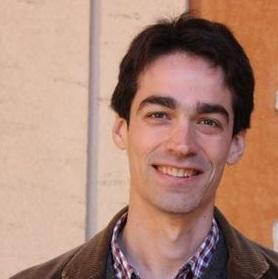Dr. Alexandre M. Roberts (2020/21, 2023/24)

Seminar für Semitistik und Arabistik
Fachrichtung Arabistik
Fellow Alexander von Humboldt Stiftung
Chemistry and Its Consequences in Byzantium and the Islamic World (2023/24)
Raum -1.1073 (souterrain)
14195 Berlin
Alexandre Roberts ist Associate Professor of Classics and History an der University of Southern California (Los Angeles, Kalifornien). Er studierte Physik und Arabistik (AB Princeton 2008), Arabisch (Damaskus 2008-2009), und Geschichte (MA Berkeley 2011), und promovierte in Geschichte (PhD Berkeley 2015). Seine Monografie “Reason and Revelation in Byzantine Antioch: The Translation Program of Abdallah ibn al-Fadl” (University of California Press, 2020) behandelt den aus dem 11. Jahrhundert stammenden, arabischsprachigen byzantinisch-christlichen Gelehrten und Übersetzer ʿAbdallāh ibn al-Faḍl al-Anṭākī sowie die Beziehungen zwischen der Philosophie der Antike und dem byzantinischen bzw. islamischen Denken im Mittelalter.
Das Projekt “Matter Redeemed” im Rahmen eines Alexander-von-Humboldt-Stipendiums an der Freien Universität Berlin (2020-2021) untersuchte, wie Gelehrte in Byzanz und im Nahen Osten das Konzept von „Materie“ und ihrer Verwandlung erfassten. Die Veröffentlichungen zum Projekt “Byzantine Engagement with Islamicate Alchemy” und “Thinking about Chemistry in Byzantium and the Islamic World” erschienen 2022 bei Isis und 2023 bei The Journal of the History of Ideas.
2023/24 ist er erneut zu Gast an der Freien Universität Berlin und bearbeitet sein Forschungsvorhaben “Chemistry and Its Consequences in Byzantium and the Islamic World.”
Research projects
Chemistry and Its Consequences in Byzantium and the Islamic World (2023/24)
The research project is a monograph in progress entitled Chemistry and Its Consequences in Byzantium and the Islamic World, which traces how medieval intellectuals writing in Greek and Arabic in various textual traditions, from Bukhara to Baghdad to Cairo and Constantinople, understood and valorized the transformation of matter; how anomalous phenomena in the laboratory and the metallurgist’s workshop prompted some to reconsider and revise received theories of mixture, especially Aristotle’s; and why they cared. I show that the practices and topics of inquiry typically associated with the modern term “alchemy” were no fringe pursuits in Byzantium or the medieval Middle East. Instead, they were undertaken by prominent individuals and studied seriously, much like medicine, for the utility and the deeper understanding of the natural world that they promised.
This project carries on the work of the AvH-funded research project Matter Redeemed (2020/2021).
Matter Redeemed (2020/2021)
How did Byzantine and Middle Eastern scholars in the medieval period understand and valorize matter and its transformation? How did they draw on and adapt ancient theories about matter and its transformation? And how did their ideas about physics and alchemy shape their thinking outside of these specialized disciplines, particularly in religious discourse, and vice versa? Matter Redeemed investigates these questions by tracing the idea-complex of matter and its transformation across three domains of knowledge: physics, alchemy, and religious doctrine (especially about the universe, humanity, and the divine, as derived from interpretations of scripture, conciliar and juridical decisions, and/or rational arguments). The project places particular emphasis on texts written by or ascribed to known scholars who worked in more than one broad domain of knowledge because such cases have the greatest potential to reveal overlaps between these domains, for example alchemists who also wrote about philosophy or religious learning. For similar reasons, it also examines texts from one domain of knowledge that refer to another domain, such as Christian theological texts that refer to metallurgical transformations to bolster their case, or Islamic legal responsa on the philosophical impossibility and illegality of transmutation. This project will contribute to western Eurasian intellectual history and to a deeper understanding of the interrelation of theoretical science, experiment, and religious thought in centuries past.
Research Interests
- Byzantium and the Islamic world
- Graeco-Arabica
- cultural and intellectual history
- history of science and religion
- textual traditions and the classical heritage
